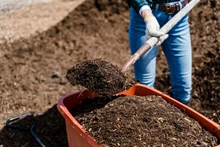
Agricultural pollution refers to the byproducts of farming activities, which contaminate the environment and surrounding ecosystems, resulting in harm to human well-being and economic interests. The governments of Ecuador, India, Kenya, Laos, Philippines, Uruguay, and Vietnam have united in a groundbreaking effort to tackle the pervasive issue of agricultural pollution. A substantial investment of USD 379 million has been pledged under FARM (Financing Agrochemical Reduction and Management) Program towards mitigating the adverse effects stemming from the extensive use of harmful agri inputs and plastics in farming practices.
The significance of chemicals in modern agriculture cannot be overstated, with staggering figures revealing the annual consumption of nearly 4 billion tons of pesticides and 12 billion kg of agricultural plastics globally. While these inputs contribute to enhancing food yields, they concurrently impose substantial risks on human health and the environment.
The detrimental impact of these chemicals manifests in various forms, with approximately 11,000 fatalities attributed to pesticide toxicity annually. Moreover, the residues of these chemicals degrade ecosystems, leading to soil degradation and compromising farmers’ resilience to climate change. Moreover, the indiscriminate burning of agricultural plastics exacerbates the air pollution crisis, contributing to significant global deaths.
Release of Persistent Organic Pollutants (POPs)
A particularly concerning aspect of agricultural pollution involves the release of persistent organic pollutants (POPs) from highly hazardous pesticides and mismanaged agricultural plastics. These chemicals persist in the environment, contaminating air, water, and food sources. Despite their harmful nature, their widespread usage persists due to their cost-effectiveness compared to sustainable alternatives.
Objective of FARM Program
In response to these pressing challenges, the United Nations Environment Program (UNEP), in collaboration with the Global Environment Facility (GEF), has spearheaded the Financing Agrochemical Reduction and Management Program (FARM). This initiative aims to incentivize the adoption of low- and non-chemical alternatives among farmers, thereby mitigating the harmful effects of agricultural pollution.
Projected Impact
Over five years, the FARM program endeavours to prevent the release of over 51,000 tons of hazardous pesticides and 20,000 tons of plastic waste. Additionally, it aims to mitigate 35,000 tons of carbon dioxide emissions and safeguard more than 3 million hectares of land from degradation. By facilitating the transition towards sustainable practices, FARM seeks to protect both human health and the environment while enhancing agricultural productivity and profitability.
The launch event of the FARM program witnessed the participation of representatives from all seven member countries, along with over 100 partners and stakeholders. These included public and private banks, policymakers, farmer cooperatives, manufacturers, international organizations, civil society, academia, and retailers. This collective endeavour signifies a pivotal shift towards collaborative action in combatting agricultural pollution, heralding a more equitable and resilient food system for future generations.
The FARM Program paves the way for sustainable practices that safeguard human health, preserve the environment, and promote food security on a global scale.
(Inputs taken from UNEP)











